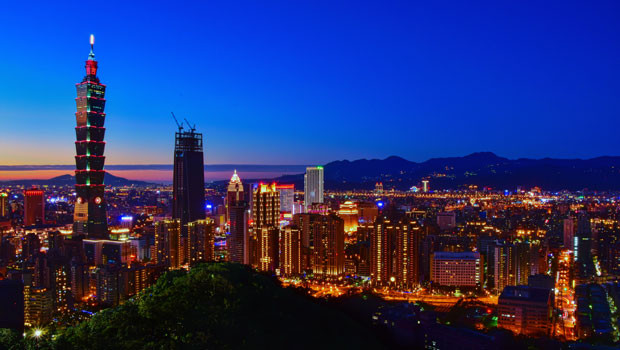Asia report: Markets mixed as investors keep watch on Pelosi trip

Markets closed in a mixed state in the Asia-Pacific region on Wednesday, as investors kept an eye on US House Speaker Nancy Pelosi’s visit to Taiwan, and any response from authorities in Beijing.
In Japan, the Nikkei 225 was up 0.53% at 27,741.90, as the yen strengthened 0.01% on the dollar to last trade at JPY 133.15.
Automation specialist Fanuc was down 0.71%, while fashion firm Fast Retailing rose 1.5% and technology conglomerate SoftBank Group was ahead 0.84%.
The broader Topix index was 0.27% firmer by the end of trading in Tokyo, settling at 1,930.77.
On the mainland, the Shanghai Composite was 0.71% weaker at 3,163.67, and the technology-heavy Shenzhen Component was 1.14% lower at 11,982.26.
Fresh data out of Beijing showed China’s services sector expanding in July, as the Caixin services purchasing managers’ index (PMI) came in at 55.5 for the month.
That was the highest reading since April last year, and represented a big step up from the 54.5 figure reported for June - well above the 50-point level that separates expansion from contraction on a month-on-month basis.
“The improvement in the services activity index is unexpected, in light of both the rising Covid cases and tightening restrictions, and of the 1.5 percentage point drop in the official services PMI for July,” said Craig Botham at Pantheon Macroeconomics.
“The explanation most likely lies in the different samples of the two surveys, and the concentration of recent Covid cases away from the coastal regions, which dominate the Caixin measure.
“The firms sampled have instead enjoyed a continued reopening rebound.”
Botham noted that new orders also rose, to 53.8 from 52.4, suggesting more activity in the pipeline, though the subindex was a “poor predictor” of the output index.
“One sign that the rebound is fading, however, is the drop in work backlogs, to 49.2, from 50.9.”
"To the extent that the gains in the headline have been driven by catch up growth, this suggests a weaker print next month.
“Employment also fell, to 48.8, from 49.6, which implies limited confidence amongst firms that the purple patch will continue - the index should pull back in August.”
South Korea’s Kospi added 0.89% to 2,461.45, while the Hang Seng Index in Hong Kong was 0.4% higher at 19,767.09.
The blue-chip technology stocks were mixed in Seoul, with Samsung Electronics down 0.65%, while SK Hynix rose 1.04%.
California Democrat Pelosi touched down in Taipei in a US Air Force plane late on Tuesday local time, becoming the highest-ranking US official to visit the disputed island territory since Newt Gingrich did as House Speaker in 1997.
The visit was surrounded by hefty warnings from Beijing, with the foreign ministry spokesman in the People’s Republic calling it a “major political provocation” in a tweet.
After Pelosi’s arrival, the People’s Liberation Army said it would begin a “series of joint military operations around the Taiwan island”, including live-firing exercises and missile tests in the Taiwan Strait.
The Ministry of Commerce in Beijing also said it would put the kibosh on the export of natural sand to Taiwan.
Taiwan has been ruled by the Republic of China since that government was run off the mainland by the Chinese Communist Party during the country’s civil war in 1949.
The CCP subsequently established the People’s Republic of China, which was recognised as the single government of Chinese territory by the United Nations and most of its members during the 1970s.
That has left Taiwan with little diplomatic recognition, maintaining ties with other nations through trade and ‘friendship’ channels.
The People’s Republic has maintained claim over Taiwan since the end of the civil war, seeing it as a rebel province under its ‘one China’ policy, although Taiwan’s democratic government has increasingly moved away from its historic position to also be the rightful ruler of Chinese territory.
“As if there wasn’t enough to deal with already, amid persistent uncertainty over the pace of US rate hikes and global recession risks, markets now also have to contend with the resurgence in US-China tensions - a familiar nemesis to risk sentiment in recent years,” said Exinity chief market analyst Han Tan.
“The aggressive tone emanating out of Beijing in response to Pelosi’s visit to Taiwan has made for a classic safe haven play in recent sessions, with gold and Treasuries rising in tandem with the US dollar and the Japanese yen.
“If risk assets are to meaningfully extend their July gains, market participants need to be comforted knowing that US-China tensions would not result in measures that would further darken the global economic outlook.”
Tan said that until such jitters could “substantially” subside, the added layer of uncertainty could translate into choppy market conditions in the interim.
“Though in a twisted way, further escalation in US-China tensions that raises global recession risks may give central bankers cause to pause their aggressive policy tightening, in turn offering a measure of relief for risk assets.”
Oil prices were weaker at the end of the Asian day, with Brent crude last down 0.64% on ICE at $99.90 per barrel, while West Texas Intermediate was 0.51% lower at $91.94 on NYMEX.
In Australia, the S&P/ASX 200 lost 0.32% to 6,975.90, while across the Tasman Sea, New Zealand’s S&P/NZX 50 jumped 1.5% to 11,705.03.
The down under dollars were in a mixed state against the greenback, with the Aussie last 0.24% stronger at AUD 1.4417, while the Kiwi weakened 0.19% to NZD 1.5983.
Reporting by Josh White at Sharecast.com.